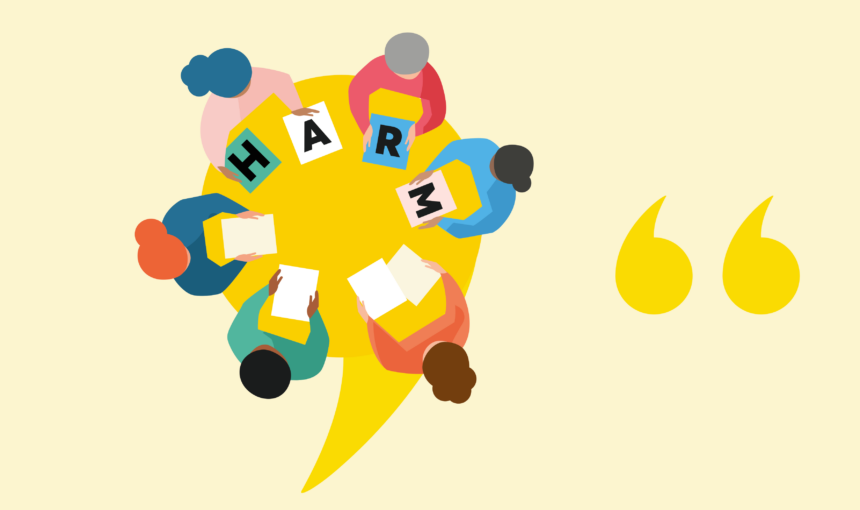The current reality in the UK is that many people with leg and foot conditions are not being treated adequately or in time and, as a result, they are being harmed. This harm is unacceptable and avoidable.
We are calling on senior leaders, decision makers and clinicians within the NHS to radically rethink the way people with leg and foot conditions are treated in order to reduce their risk of being harmed.

These are the ten things that need to happen in order to end the hidden harm crisis within leg and foot care
01. Acknowledge it as harm
We need to recognise that insufficient care of leg and foot conditions is harming people. This means calling it harm and recording and monitoring system delays.
02. Change the language
We need to stop talking about managing people with leg and foot conditions and start talking about healing people with leg and foot conditions.
03. Give immediate and necessary care
Every clinician must be empowered to implement the National Wound Care Strategy’s guidance to give immediate and necessary care to a patient with a leg or foot condition.
04. Make sure every patient has access to evidence-based practice
Every patient should have access to a treatment plan and local pathway that will increase their chances of healing and of having a better quality of life.
05. Increase access to the right products at the right time
We must remove restrictions within procurement or pharmacy that prevent patients and clinicians from being able to access the right dressing at the right time.
06. Actively listen to patients
We must personalise the care we give, encourage our patients to take an active role in their treatment, and take immediate action when a patient tells us that their condition is deteriorating or that they are experiencing delays in treatment.
07. Address systemic knowledge and skills gaps
Senior leaders need to identify the variation in care and health inequalities so that a focus can be given to enhancing knowledge and skills for the benefit of patients and the health economy.
08. Don’t be afraid to escalate
Non-healing must be challenged. Escalation for a second opinion is not a failure of care; it is a measure of good care.
09. Actively challenge the system
We must not let the acceptance of non-healing, system delays or capacity issues stop us from taking action to prevent patient harm.
10. Change the system
We need to put in place contracted leg and foot standardised pathways (eg PCN and ICS based service models) that are informed by national recommendations and developed in partnership with our residents.
Who we are
Legs Matter is a coalition of healthcare organisations that have come together to end the hidden harm crisis in the treatment of people with a leg or foot condition.









